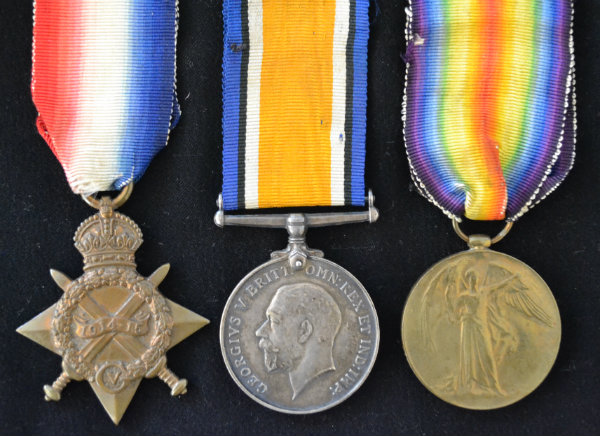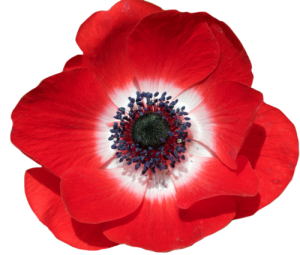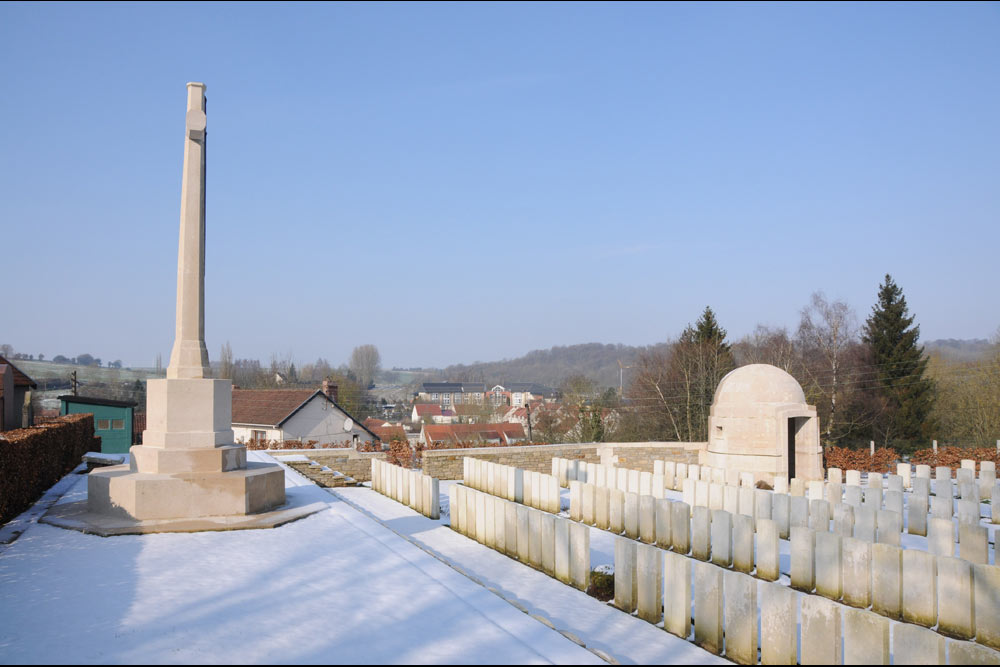Personal Details
Born in Wrexham, Denbighshire, Wales in 1883, the eldest son of the late Thomas Evans and Ruth Evans of Island Green Cottage, Wrexham, Wales.
Husband of Alice Evans (nee Williams) (married in 1904) of Higher Wych, Malpas, Cheshire and father to Ethel, John James, Thomas and Arthur.
The 1911 Census shows John as a farm labourer.
John’s younger brother, James, also lost his life in the Great War.
Military Details
Regiment : D Company, 5th Battalion King’s Shropshire Light Infantry
Rank : Private
Service Number : 16514
Died of wounds; France 22 April 1916 Aged 33

The 1914 Star (also known as 'Pip') was authorised under Special Army Order no. 350 in November 1917 and by an Admiralty Fleet Order in 1918, for award to officers and men of the British and Indian Expeditionary Forces who served in France or Belgium between 5 August and midnight of 22–23 November 1914. The former date is the day after Britain's declaration of war against the Central Powers, and the closing date marks the end of the First Battle of Ypres.
The 1914–15 Star (also known as 'Pip') was instituted in December 1918 and was awarded to officers and men of British and Imperial forces who served against the Central European Powers in any theatre of the Great War between 5 August 1914 and 31 December 1915. The period of eligibility was prior to the introduction of the Military Service Act 1916, which instituted conscription in Britain.
The British War Medal (also known as 'Squeak') was a silver or bronze medal awarded to officers and men of the British and Imperial Forces who either entered a theatre of war or entered service overseas between 5th August 1914 and 11th November 1918 inclusive. This was later extended to services in Russia, Siberia and some other areas in 1919 and 1920. Approximately 6.5 million British War Medals were issued. Approximately 6.4 million of these were the silver versions of this medal. Around 110,000 of a bronze version were issued mainly to Chinese, Maltese and Indian Labour Corps. The front (obv or obverse) of the medal depicts the head of George V. The recipient's service number, rank, name and unit was impressed on the rim.
The Allied Victory Medal (also known as 'Wilfred') was issued by each of the allies. It was decided that each of the allies should each issue their own bronze victory medal with a similar design, similar equivalent wording and identical ribbon. The British medal was designed by W. McMillan. The front depicts a winged classical figure representing victory. Approximately 5.7 million victory medals were issued. Interestingly, eligibility for this medal was more restrictive and not everyone who received the British War Medal ('Squeak') also received the Victory Medal ('Wilfred'). However, in general, all recipients of 'Wilfred' also received 'Squeak' and all recipients of The 1914 Star or The 1914/1915 Star (also known as 'Pip') also received both 'Squeak' and 'Wilfred'. The recipient's service number, rank, name and unit was impressed on the rim.
Further Information
Report in the Whitchurch Herald 6th June 1916 regarding the death of John Evans
"It is with deep sympathy for the widow and four children left at the Higher Wych that we announce the death of that fine soldier, No 16514 Private John Evans, 5th Batt. King’s Shropshire Light Infantry. Physically he was the finest recruit attested at Whitchurch. It is some consolation to his friends to know that he took part in the fight on the 20th April, in which the King’s Shropshire Light Infantry, added yet another achievement to their glorious records. We give a letter from one of his officers, and there are besides many in the neighbourhood who can testify to the sterling work of John Evans, and he has an equally heroic brother to welcome him where he has gone.
"Dear Madam. - I am very sorry to have to tell you that your husband has been badly wounded by a shell, a piece of which hit him in the shoulder and back, and there appears to be some injury to the spine which I sincerely hope will not prove so serious as was first thought. He will be a great loss to us. His cheeriness and splendid comradeship and excellent qualities as a soldier have made him practically indispensable to the platoon. We all feel with you in your anxiety. - Yours faithfully
(Signed) E. G. R. Lloyd, Lieut 5th K.S.L.I.""
Whitchurch Herald 6th June 1916
If you can provide any further information on John Evans please get in touch by leaving a comment below, using our Contact Form or by calling in to Whitchurch Heritage Centre.
Information provided by Whitchurch Museum and Archives


